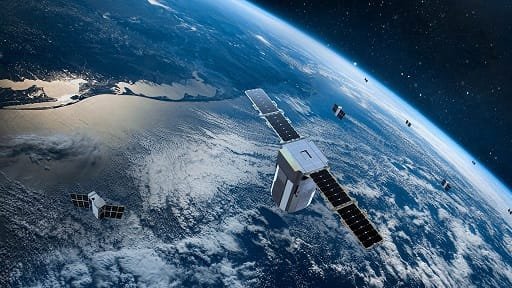Enhancing Communication Capabilities
The backbone of any successful orbital mission is effective communication. Space technology has revolutionized this aspect by enabling seamless channels through advanced satellite infrastructure. These satellite networks provide a robust framework for real-time data transmission, crucial for mission control, onboard crew coordination, and even international space collaborations. This capability is not just confined to governmental space agencies but has expanded into private sector interests, connecting terrestrial operations with ambitious space-based initiatives. The satellite infrastructure allows for rapid response and adaptability, which is crucial for the dynamic nature of global communications.
Improvements in satellite communications have transformed the global landscape, making real-time teleconferencing and internet access from virtually any location possible. The bandwidth and signal reliability advancements support high-demand data services that cater to modern applications, ensuring continuous connectivity and functionality.
Supporting Navigation Systems
Space technology plays a pivotal role in enhancing global navigation systems. The Global Positioning System (GPS) has become deeply embedded in our daily lives, moving beyond simple directional guidance to impacting sectors like emergency response, agriculture, and urban development. Satellite navigation technology depends on continuous innovation and upgrades to ensure the precision, reliability, and coverage necessary for widespread applications. The interplay between multiple satellites allows for triangulation, providing precise location data to end-users on Earth, significantly enhancing accuracy over decades of advancements.
Such systems are also foundational for the operations of industries like aviation and maritime, where precise location data is crucial for safety and efficiency. With advancements in satellite placements and signal processing, navigation systems offer real-time, centimeter-level accuracy. These improvements open new frontiers for automated vehicles and smart city infrastructure, aligning with global trends toward digitization and automation.
Advancing Earth Observation and Monitoring
Space technology provides a remarkable vantage point through Earth observation satellites. These sophisticated systems monitor a wide array of environmental and geological phenomena, critical for applications in disaster management, environmental science, and urban planning. Enhanced imaging capabilities offer detailed insights into the Earth’s atmospheric conditions, oceanic processes, and land use changes, informing key decisions across various sectors. The real-time data supports modeling and forecasting initiatives that prepare communities for adverse weather conditions and potential natural disasters, thus minimizing societal and economic impacts.
These satellites play an instrumental role in early warning systems for natural calamities like hurricanes, earthquakes, and floods, thus supporting efforts to mitigate their impact. By facilitating real-time data provision and long-term climatic observations, space-based Earth monitoring enables governments and organizations to develop informed strategies for climate adaptation and resource management. Investing in Earth observation systems represents an investment in understanding our planet’s future, constantly evolving with technological advancements to offer even greater value.
Ensuring Security of Space Assets
The increasing reliance on space technology necessitates formidable security measures to protect these invaluable assets from diverse threats. With the proliferation of cyber threats, safeguarding satellite systems against malicious intrusions has become vital. Cybersecurity is one aspect; however, the physical security of space assets, including protection against potential impacts from space debris, remains a significant challenge that requires continued research and development. Robust security frameworks and strategic defenses against terrestrial and extraterrestrial threats are necessary to maintain the integrity and functioning of space technologies.
As the competitive arena of space exploration becomes more crowded, geopolitical tensions can give rise to threats that target satellites as strategic tools. Consequently, developing international treaties and cooperative measures has become indispensable for ensuring a stable and secure space environment. By prioritizing security in today’s space missions, we lay the groundwork for a sustainable future where innovative technological solutions continue to serve humanity without compromising safety or security.
International Cooperation for Space Missions
International partnerships lay the foundation for advancing space exploration and technology. These collaborative missions harness diverse resources, expertise, and funding sources, achieving remarkable results unattainable by solitary ventures. Projects like the International Space Station exemplify the power of global cooperation in pushing the bounds of human knowledge and expanding space capabilities. The arena of space exploration becomes a shared human endeavor, uniting countries under common objectives that transcend national interests.
By working together, nations share the risks and rewards of space exploration, fostering a culture of collaboration and peace that surpasses terrestrial conflicts. These shared objectives not only advance scientific understanding but also facilitate geopolitical stability. The solutions developed through these collaborations often trickle down to economic and humanitarian benefits that enhance global welfare. For instance, advancements in satellite technology often result from international collaboration, improving telecommunications and environmental monitoring systems worldwide.
Promoting Sustainability in Space Exploration
Sustainability is a pressing issue in space technology, demanding responsible exploration to ensure long-term viability. With the increasing frequency of launches and missions, sustainable practices in space operations are critical. Reusable rocket technology and eco-friendly fuel alternatives pave the way for more sustainable approaches, setting the stage for a future where efficiency and responsibility go hand in hand. The benefits of these practices are both environmental and economic, reducing the cost per launch and expanding access to space technology in the process.
As the density of satellites increases, the international community has acknowledged the challenges associated with space debris and is proactively instituting measures to mitigate its impact. Structured mission planning and innovations like decentralized satellite constellations are crucial to these efforts, fostering a sustainable environment where future generations can continue exploring and benefiting from space resources. The commitment to sustainability in space reflects our broader responsibility to safeguarding environments, celestial and earthly alike, never losing sight of the imperative to preserve the cosmic landscapes that inspire human exploration.



